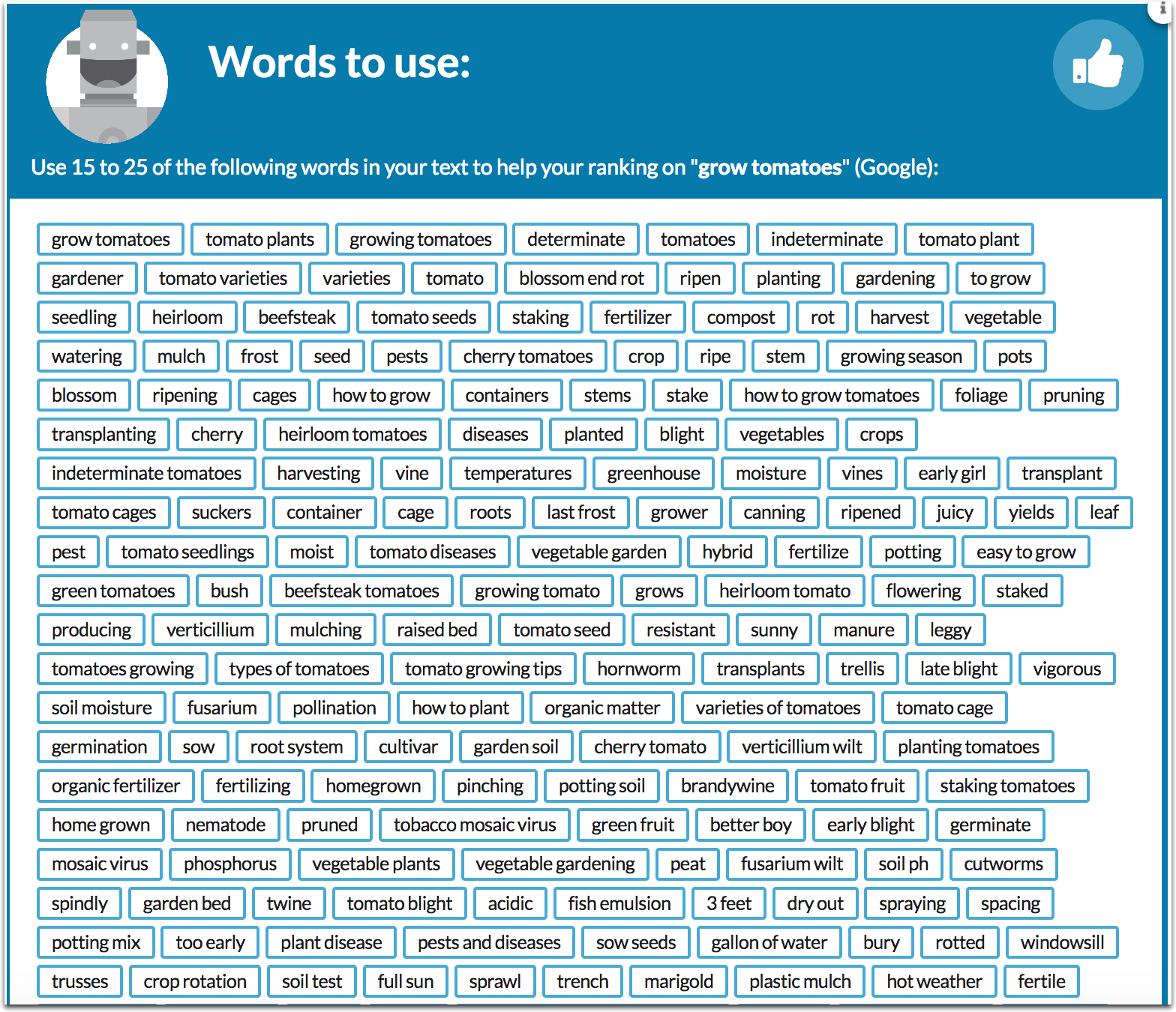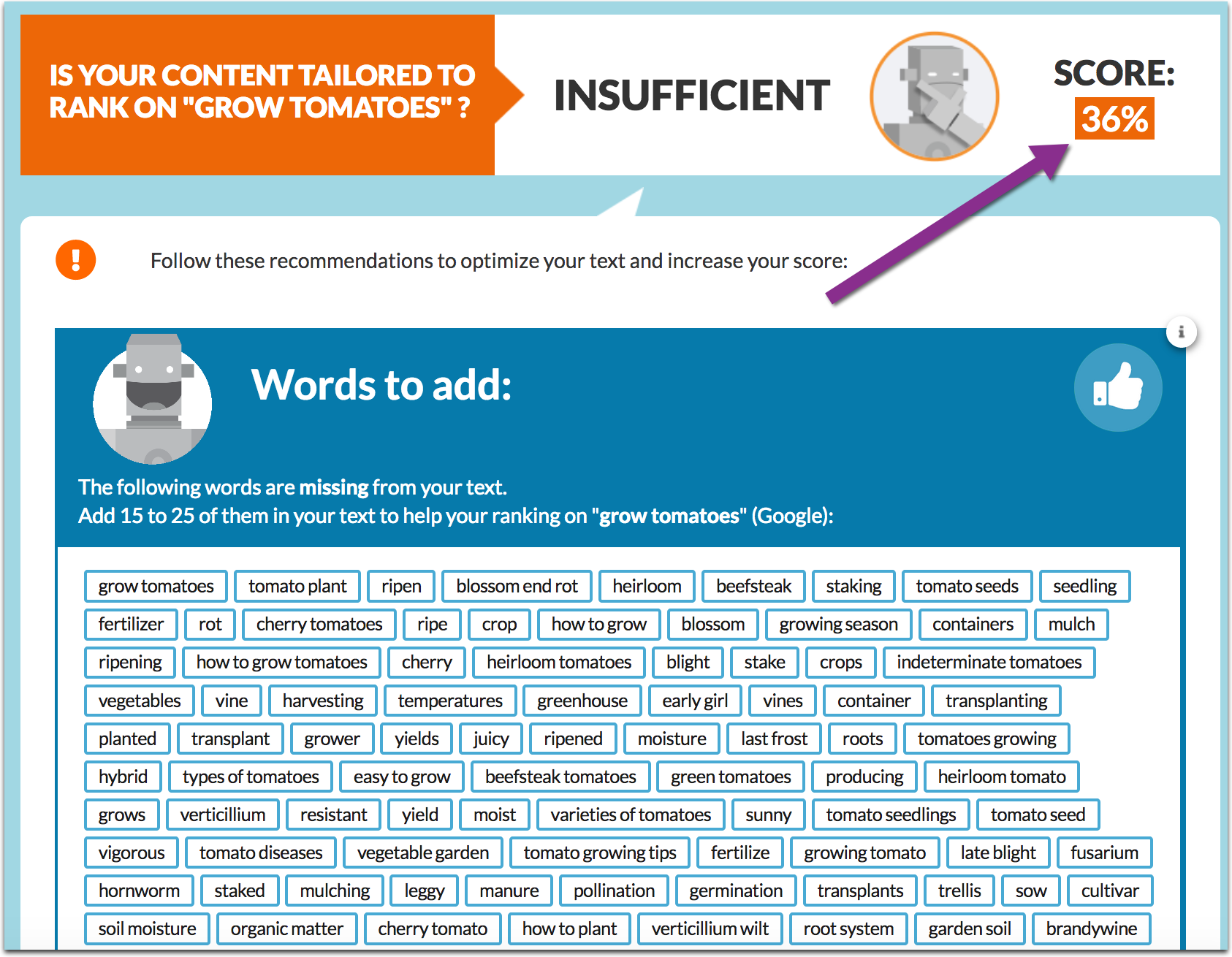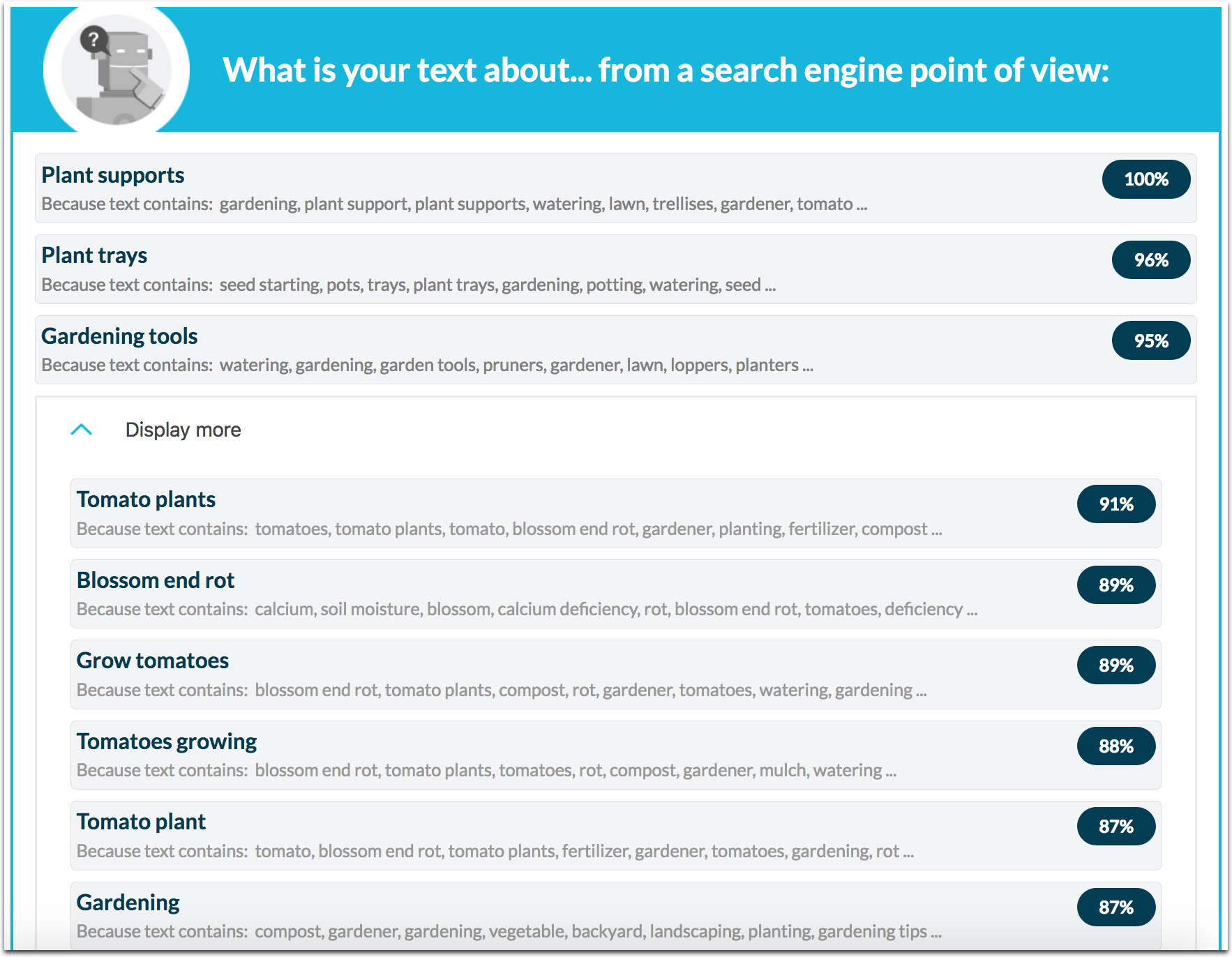
SEO moved beyond exact keyword matching long ago. These days, in order to rank, we need to create content that includes related concepts, satisfies intent and provides value.
With such an important and complicated task in front of us, there’s never such a thing as too many tools.
Every keyword tool below has something new to bring to the table when it comes to helping you understand the topic better, expand your keyword list and diversify your organic rankings:
1. TextOptimizer
TextOptimizer[1] is probably the most interesting tool on the list. For any term you put it, it will look at Google search result page, extract search snippets and apply semantic analysis to generate the list of all related topics, terms and concepts that form your topic cluster.
For example, for [grow tomatoes] it will generate the list of the following terms:

If you already have a page that you want to rank for that query, the tool will compare your existing text to the snippets Google returns for that query. It will then score your text and recommend expanding your content to include some of those suggested terms:

The thing is, Google generates its search snippets based on which sentences from the ranked pages do the best job satisfying the query. This means that Google search snippets represent the best (in Google’s opinion) summary of the query topic.
By semantically analyzing those snippets and extracting related terms and topics from them, you will get a better understanding of what you need to include in your content.

It also shows subtopics and related questions (i.e. niche questions for each query you run) which helps you structure and format

